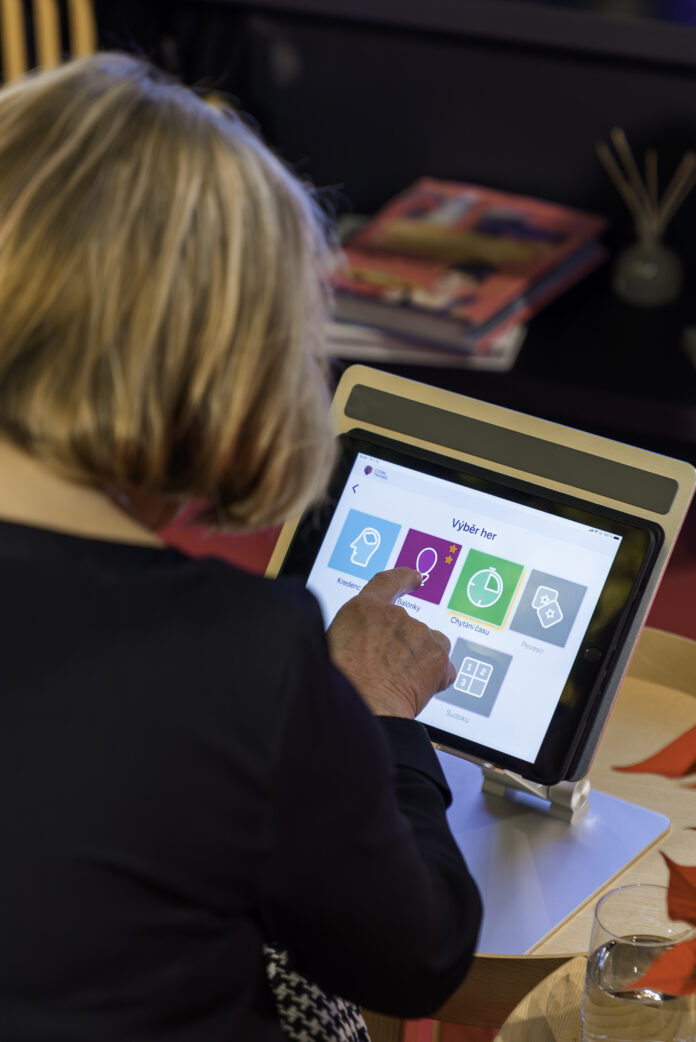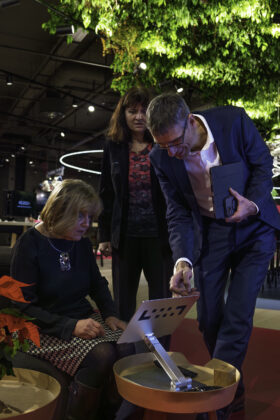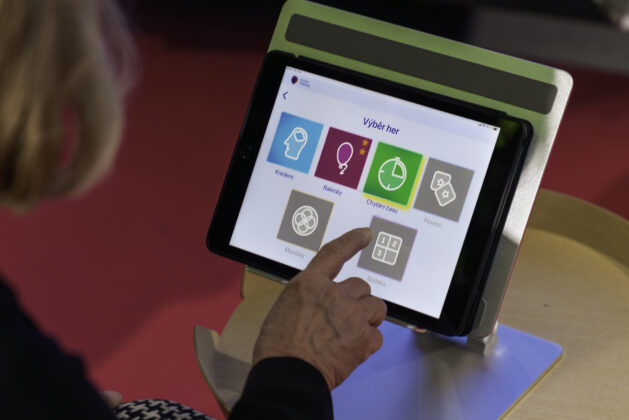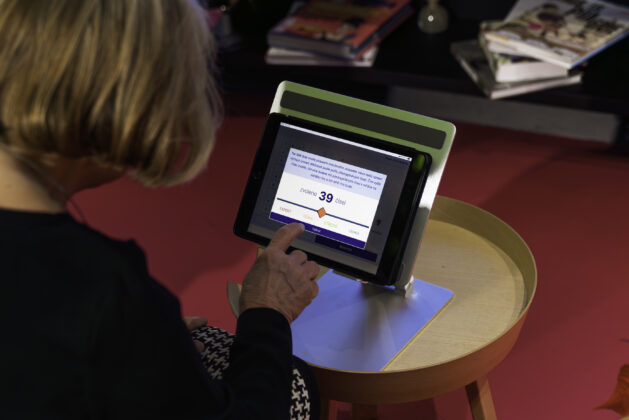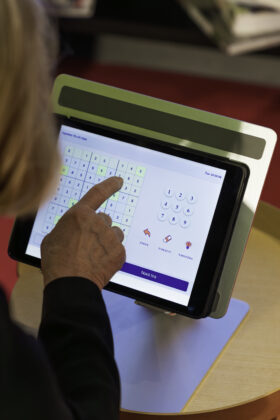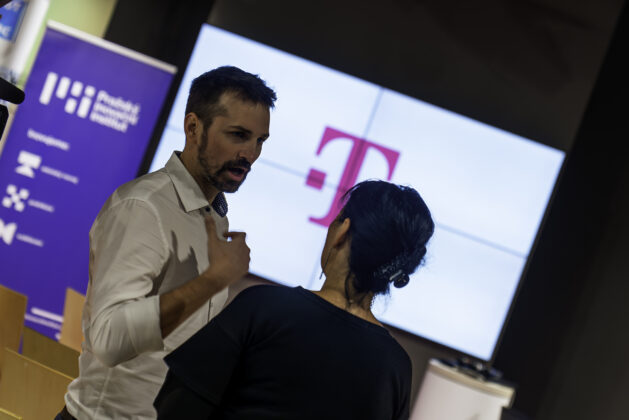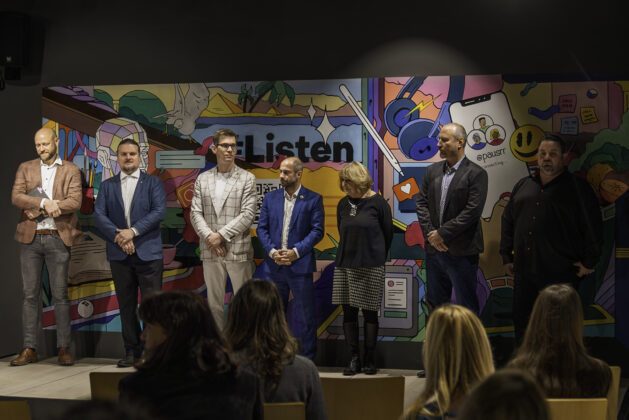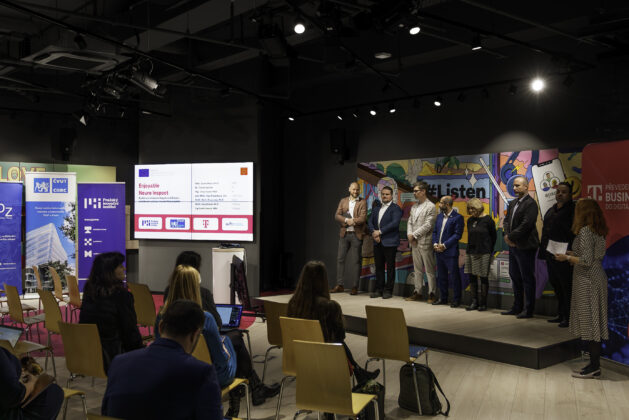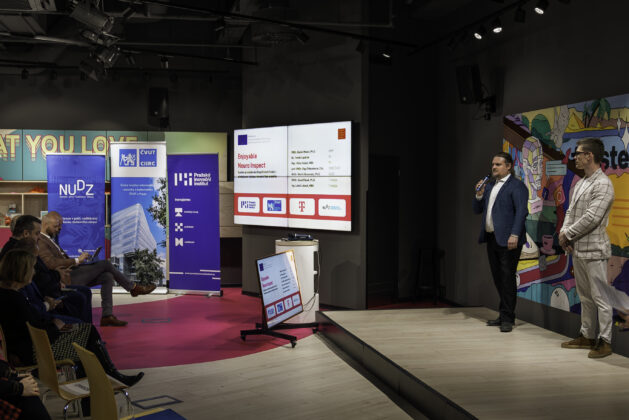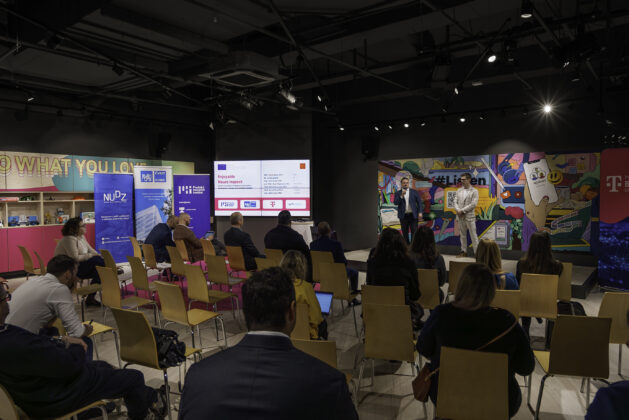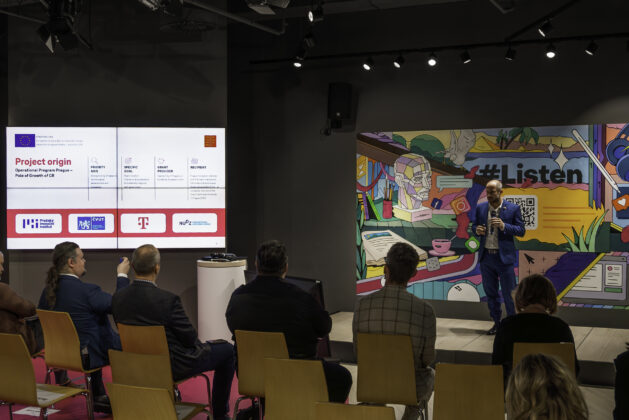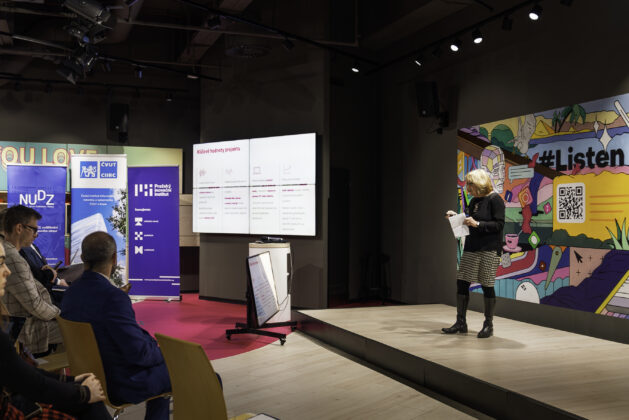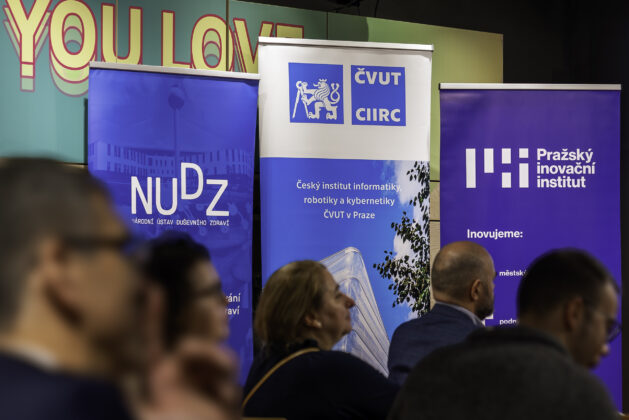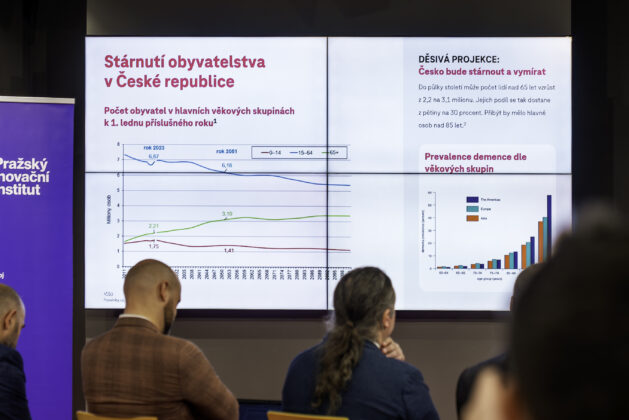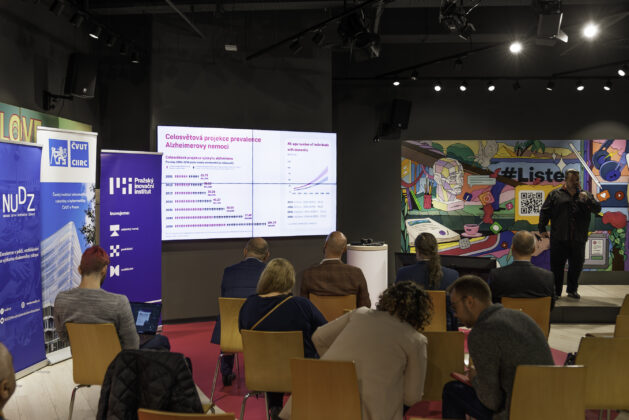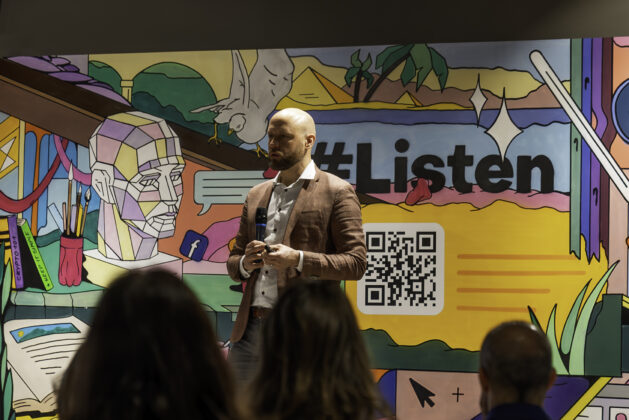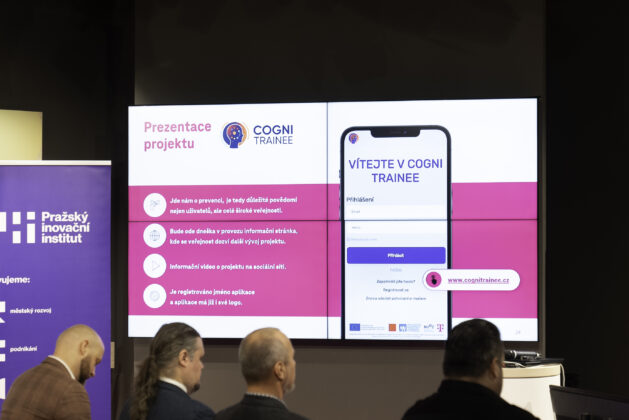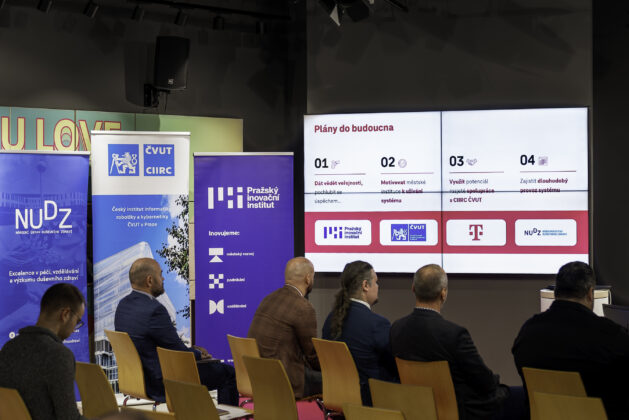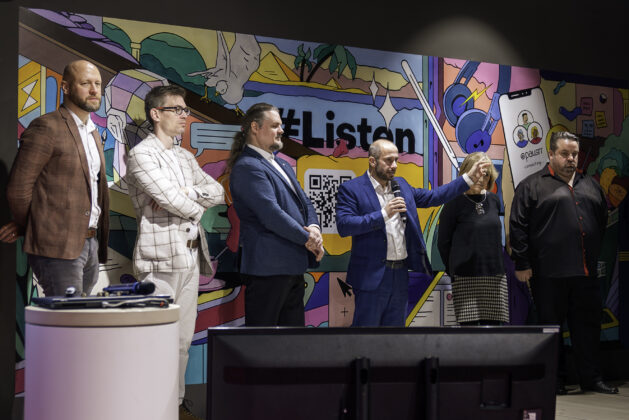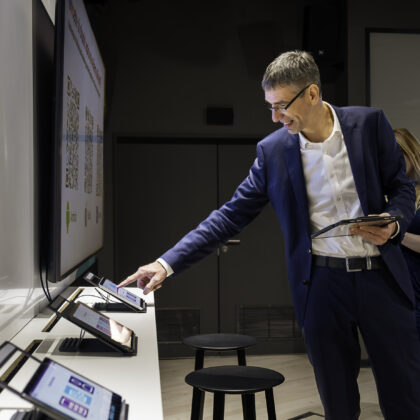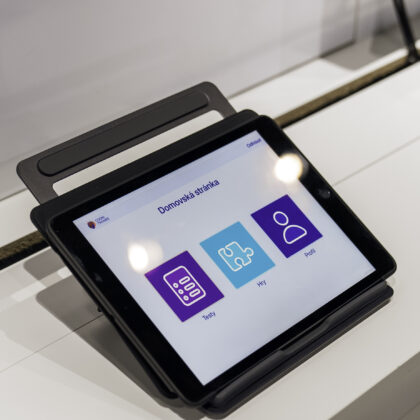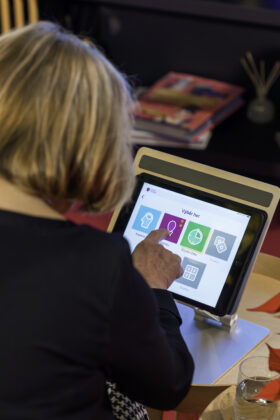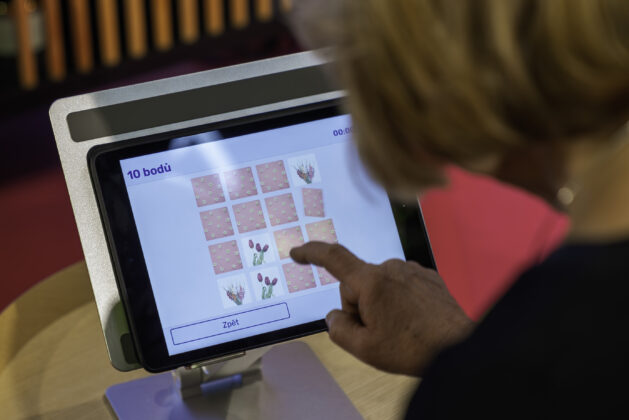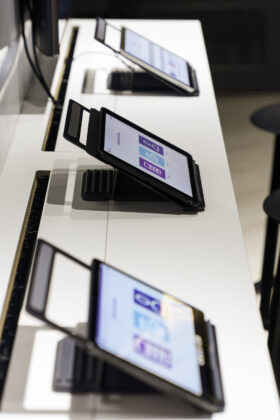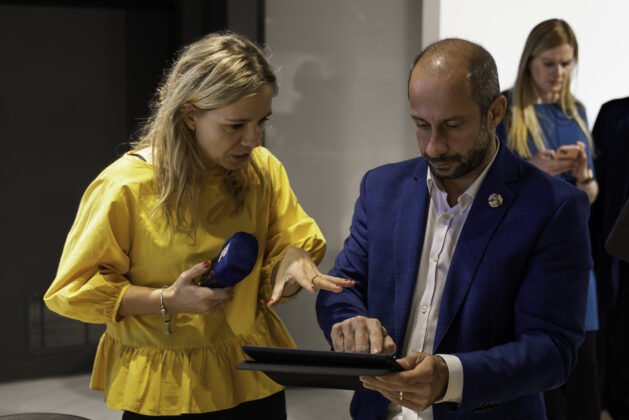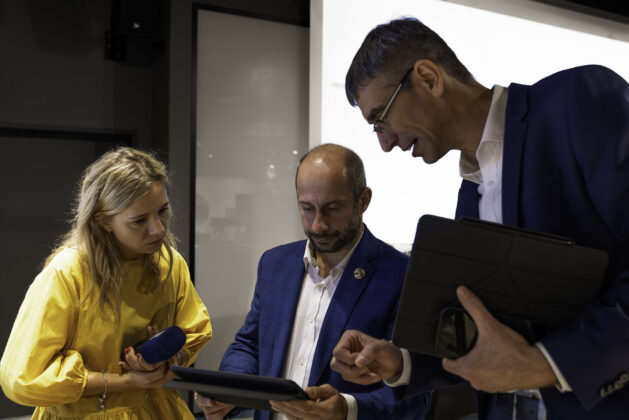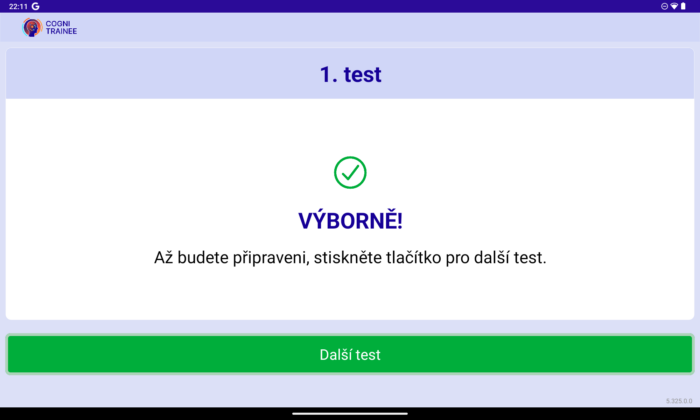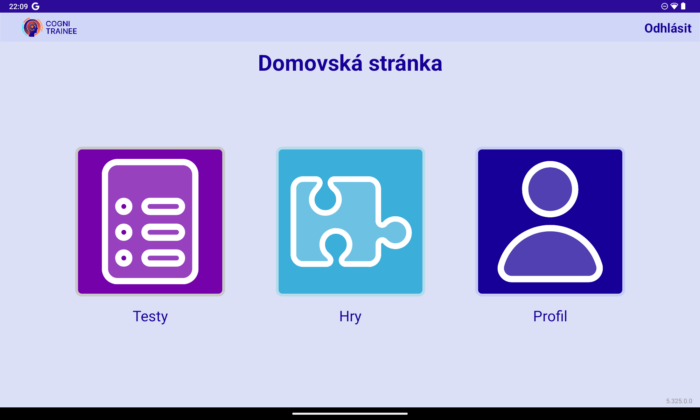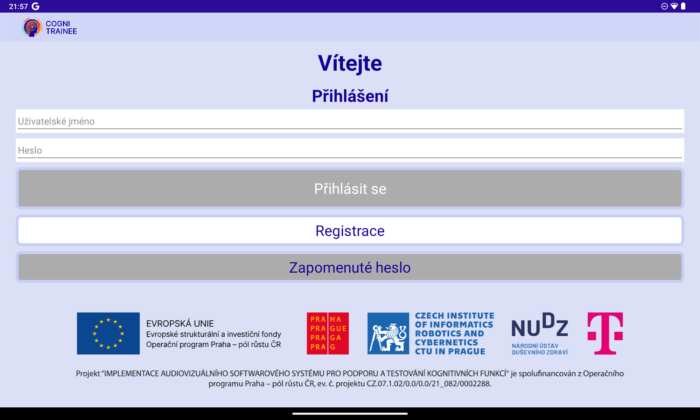Long-term testing of mental abilities, especially in the elderly, will catch deterioration that is otherwise difficult to detect early. That’s how the revolutionary mobile app Cogni Trainee works, which was co-developed by Czech neuroscience experts. The technological innovation can help detect symptoms that may be a sign of an emerging neurodegenerative disease. It uses machine learning and mathematical models to test memory, speech, attention, spatial orientation and decision-making. With Cogni Trainee, if the disease is caught at an early stage and the person gets medical care in time, the disease would slow down significantly and the person would remain independent for longer.
Experts from the Prague Innovation Institute, under the auspices of the Prague City Council, worked for three years on the development of the innovative platform together with the Czech Institute of Informatics, Robotics and Cybernetics (CIIRC CTU), T Mobile and the expert guarantor – the National Institute of Mental Health (NUDZ). The application will be gradually expanded with additional functions and tests.
„The results show that the application can contribute to strengthening the prevention of neurodegenerative diseases in the general population in GP practices. We are glad that the City of Prague could participate in the development of this unique app,“ says Prague Councillor for Innovation Daniel Mazur, PhD.
„The cooperation between the Prague Innovation Institute, CIIRC CTU, NUDZ and T-Mobile is an example of the much talked about cure for our economy – knowledge and technology transfer. This collaboration has provided the Cogni Trainee application with a framework of public interest, scientific basis and technological excellence. Such partnerships allow academic research to be combined with the capabilities of industrial partners, which is key to the successful development and emergence of innovative technologies. This is the goal of innovation and applied research, which, when put into practice, can serve society well,“ says Tomáš Lapáček, Director of the Prague Innovation Institute.
One in three people is at risk of dementia
As life expectancy increases, so does the number of patients suffering from neurodegenerative diseases such as Alzheimer’s and Parkinson’s. „It is said that neurodegenerative diseases are the pandemic of the 21st century. Lost abilities cannot be regained, but the progression of the disease can be slowed as much as possible. That is why early warning is so necessary,“ explains Prof. Olga Štěpánková, PhD, CSc., from the CIIRC CTU, one of the authors of the testing application, and adds: „Thanks to the app, the CIIRC CTU research team gains access to unique data, the analysis of which will help to better understand how Alzheimer’s disease develops over time, where it originates and how to detect it as early as possible. The potential of this research for society and science is immeasurable.“
The Cogni Trainee app was featured in a prime-time report on the „Události“ programme and in „Naše téma“ programm.
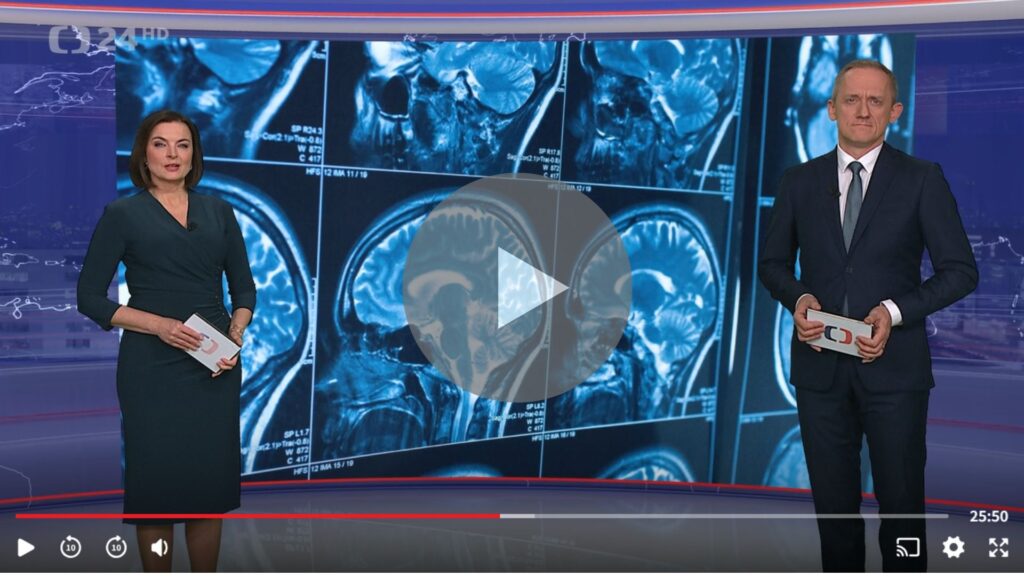
The onset of the first symptoms is usually very gradual and the changes are so subtle that they cannot be recognised at first sight. This is especially true for seniors over 65. Negative development or delaying the progression of the disease can be slowed down by training or medication. But the key is to recognize the deterioration in time.
„The Cogni Trainee app is not a diagnostic or treatment method, but is an expert alert system that is aimed at early detection of symptoms that could be the first warning signs of early neurodegenerative disease. The aim of the application is to inform about the possible onset of an impending disease at a very early stage, when it is possible to slow down the rate of development of the disease and delay its progression, either through training or early medication,“ adds Martin Brunovský, M.D., Ph.D., from NUDZ, expert guarantor of the scientific and ethical validity of the research.
Although there are no precise data on the incidence and prevalence of individual neurodegenerative diseases, according to expert estimates, approximately 150 000 people in the Czech Republic suffer from Alzheimer’s disease. This number is expected to almost double by 2050. This is related to the ageing of the Czech population, where the number of people over 65 may rise from 2.2 to 3.1 million by the middle of the century. Thus, one in three people of working age will eventually experience some form of dementia.
Neurodegenerative diseases have a significant impact on the quality of life of the individual and those around them, and therefore have an impact on society and the economy as a whole. Prevention and early detection are therefore important. Cognitive testing can tell us a great deal about an individual’s condition and changes in their mental state.
„Delaying the advanced stages of the disease is crucial not only for the elderly themselves, but also in terms of the capacity of social services. Early diagnosis will help to keep the person in their natural home environment for as long as possible. This is important not only for society but also for public budgets. We believe that Cogni Trainee will also contribute to saving financial resources and thus to improving the quality of social care in Prague and in the future in other regions as well,“ says Mgr. Viktor Kubát, MBA, principal investigator of the project.
What are the results of the clinical study
The clinical trial included 153 people who were repeatedly assessed with a set of neuropsychological scales (approximately ⅔ of participants were from nursing homes and ⅓ from home settings), according to the NUDZ. At the same time, participants were monitored with the Cogni Trainee software application testing verbal, logical-mathematical, memory and emotional abilities. Based on clinical data and extracted symptoms (which also included voice analysis and facial expression scanning), the newly developed alert system demonstrated the ability to detect early changes in cognitive performance that could indicate the development of a possible neurodegenerative disease, according to the NUDZ. The system demonstrated high sensitivity (0.83) and very good specificity (0.74), a degree of confidence comparable to that provided by other common medical tests such as ECGs.
How does Cogni Trainee work?
Cogni Trainee helps to catch early the cognitive deterioration that often accompanies the early stages of symptoms of neurodegenerative diseases. Simply put, it involves testing basic cognitive and emotional symptoms. The application combines testing of an individual’s verbal, logical-mathematical, memory and emotional abilities. It is not, however, a test-taking exercise. The uniqueness of the app is that it tests abilities and their interrelationship over a long period of time and in combination with monitoring other manifestations, including those beyond the user’s direct control, such as fluency and pressure of touch while using the tablet, speech parameters or facial expressions.
The company behind the technical design of the app is T Mobile, which, among other things, is involved in the digitalisation of various sectors in industry, but also in the areas of e-health and social life. „Technology can process huge amounts of data in real time. We have managed to design and implement an innovative solution that speeds up the process of evaluating a single cognitive function test from hours to units of minutes. This increases the efficiency of such an examination compared to the conventional pencil and paper method. In addition, it is possible to effectively monitor the development of an individual’s health status over a long period of time and to draw attention to even minimal deviations in time,“ adds Ing. Luboš Lukasík, MBA, Director of the T Business Division of T Mobile Czech Republic, which supplied the technical solution of the application.
In total, Cogni Trainee evaluates up to several hundred interactive inputs, including video and voice, using advanced mathematical and machine learning methods. Therefore, it is important that the user allows the application to access the microphone and camera.
Individual tests in the app assess the user’s ability to sustain attention, his memory and tactile skills. The entire test series takes less than 20 minutes. If the user tests at least twice every three months, he or she will receive a final score that can serve as an indicator of a possible health problem.
Photos from the event:
The story of Olga Štěpánková behind the app
Currently, there are drugs that can be given to Alzheimer’s patients. However, these drugs do not cure the disease, they can only suspend it. By the time you or those around you notice that something is wrong with you, it may be too late. This was one of the motivations of Professor Olga Štěpánková, Head of the Department of Biomedicine and Assistive Technologies at the CIIRC CTU, for searching for and designing a simple, widely available tool that could be used for preliminary diagnosis of this disease. Olga Štěpánková has been involved in artificial intelligence and its application in medicine all her professional life and has devoted numerous articles and studies to these topics. In recent years, she has focused on finding symptoms that may indicate the development of Alzheimer’s disease. She is also building on the scientific research of her parents, who have been working on this topic in the Czech Republic since 1985. Continuing what her parents started is both a motivation and a commitment for Olga Štěpánková.
How did CTU participate in the project?
The CIIRC CTU came up with the idea and the detailed design of the required solution described in the project, which was submitted by the CIIRC as a partner of the Prague Innovation Institute to the competition announced by the City of Prague. Prague decided to support this project. The contract was won by T-Mobile and a project team was assembled in which CIIRC CTU and NUDZ combined their know-how. The development of the application according to the original design was carried out by a professional T-Mobile team, which has extensive experience in this field. The result is a user-friendly application whose testing portfolio is so extensive that it is impossible to prepare for the tests. A significant advantage compared to „paper“ testing is that its results are not distorted even by frequent repetition. It therefore offers a sufficiently accurate picture of the current state of the test subject’s cognitive functions.
On behalf of the CIIRC CTU, the project was carried out mainly by Prof. Olga Štěpánková, Head of the Department of Biomedicine and Assistive Technologies of the CIIRC CTU, Dr. Lenka Vysloužilová, Head of the Department of Cognitive Systems and Neuroscience, and Assoc. Lenka Lhotská, from the same department of CIIRC CTU.
What is the application’s future potential in terms of technology?
The potential is immeasurable. Not only in the unprecedented scope of diagnosing cognitive disorders, but also for further research into the causes of these diseases, such as Alzheimer’s disease. Thanks to the anonymised data that we get from the app, we have a database of information that includes data that has not been used for diagnosis. It will therefore be possible to look in detail at other attributes, such as the human voice, which may change rapidly during the course of the disease and therefore have significant diagnostic potential. It is perhaps fair to say that we are not aware of a project of this scale in the world, and we therefore have completely unique data sets that open up opportunities for further research with huge societal impact.


